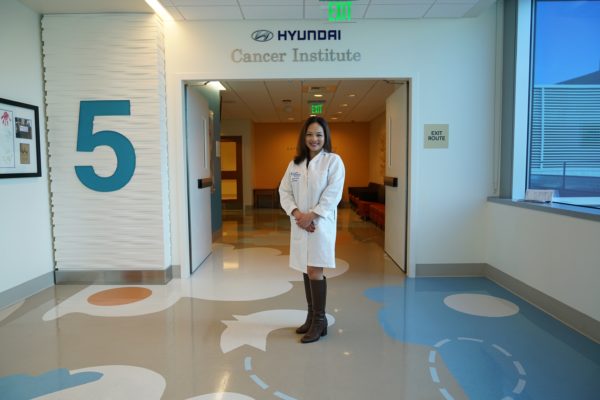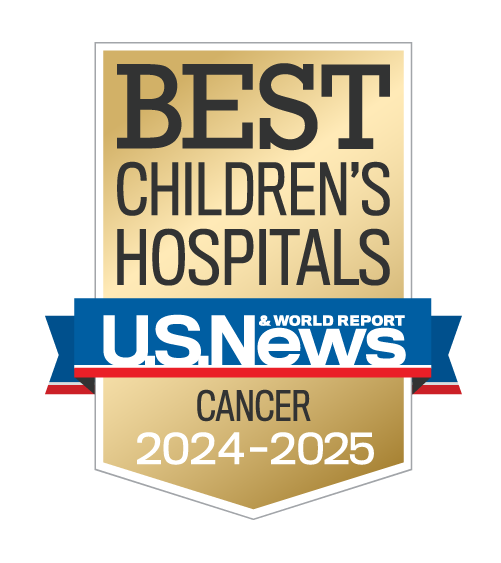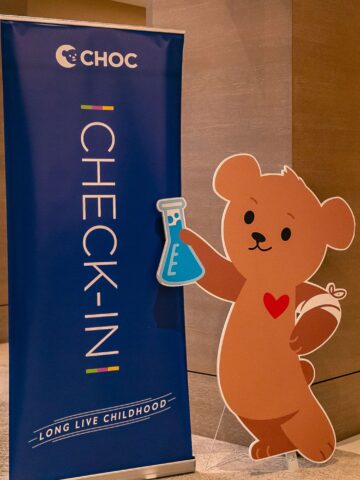Innovative research conducted at the Hyundai Cancer Institute at CHOC includes investigations into immunotherapy, which has emerged as an effective therapeutic modality for patients with hematologic malignancies. Chimeric Antigen Receptor (CAR) T-cell therapy is capturing the attention of the medical community as a prominent example of cellular immunotherapy and is often referred to as a “living drug.”
“CAR T-cell therapy has revolutionized the treatment landscape of relapsed or refractory B-cell acute lymphoblastic leukemia (ALL) — a disease that was historically considered to have a very poor prognosis,” says pediatric oncologist Dr. Van Huynh, who leads the CAR T-cell program at CHOC “With this remarkable approach, we are able to harness the patient’s own immune system to potentially cure their leukemia.”

CHOC was one of the first pediatric sites for CAR T-cell therapy clinical trials in 2015. Along with providing access to innovative clinical trials for CAR T-cell therapy and other immunotherapy, CHOC is now a certified treatment center for providing the recent U.S. Food and Drug Administration-approved CAR T-cell therapy called KYMRIAH. It is available to pediatric and adolescent/young adult (AYA) patients who are up to 25 years of age with second or later relapse or refractory (R/R) B-cell ALL or patients with R/R large B-cell lymphoma.
CAR T-cell therapy involves the collection of a patient’s own T-cells and genetic modification of these cells to express a CAR that can recognize a tumor antigen such as CD19 on leukemia cells. The CAR T-cells are then expanded in the lab and later re-infused back into the patient, where they continue to expand and seek out the target antigens to eradicate the leukemia.
CAR T-cell therapy has given hope to many patients who otherwise had no other treatment options. Furthermore, dramatic initial clinical responses and high rates of complete remission have been observed. Relapses can occur due to antigen loss (leukemia cells no longer express the target antigen) or CAR T-cell exhaustion (the CAR T-cells no longer provide protection).
“Currently, researchers are looking into ways to overcome these two barriers to make this therapy even more effective,” Dr. Huynh says. “I’m also excited for the potential of CAR-Ts to target other antigens besides CD19 and the possibility that it may be able to treat other types of cancer.”

CHOC Hospital was named one of the nation’s best children’s hospitals by U.S. News & World Report in its 2024-25 Best Children’s Hospitals rankings and ranked in the cancer specialty.




